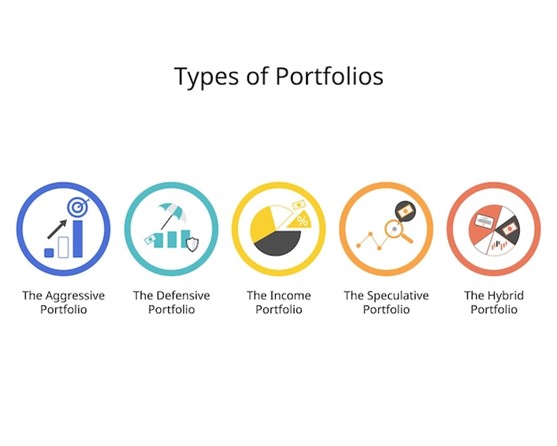Image Source: FreeImages
Introduction
Alternative investments are a category of financial assets that fall outside the conventional framework of stocks, bonds, and cash. They encompass a wide range of assets, including private equity, venture capital, hedge funds, real estate, commodities, and digital assets such as cryptocurrencies. In the current investment landscape, alternative investments are becoming increasingly popular due to their potential for high returns and capacity for portfolio diversification. In this article, we’ll delve into the many benefits of alternative investments and explore why they are a crucial tool in modern investment portfolios.
Understanding Alternative Investments
Alternative investments are a diverse group of financial instruments that are typically not included in the traditional investment categories. They can consist of tangible assets like real estate and commodities, as well as financial contracts such as private equity, venture capital, and hedge funds[^1^]. Additionally, alternative investments can include unique asset classes like art, antiques, and collectibles[^2^].
The distinctive characteristics of alternative investments, such as their low correlation with traditional assets and potential for high returns, make them an attractive addition to an investor’s portfolio.
[^1^]: Reference Article 1 https://www.linkedin.com/feed/ [^2^]: Reference Article 2 https://www.kubera.com/
Why Consider Alternative Investments?
Adding alternative investments to a portfolio can bring a multitude of benefits. Here are some of the top reasons why individual and institutional investors alike are increasingly turning to alternative assets:
Diversification
One of the primary reasons investors consider alternative investments is the diversification benefits they offer[^3^]. Because alternative investments often have low or negative correlation with traditional assets like stocks and bonds, they can provide a hedge against market downturns[^1^]. This diversification capacity can help to lower overall portfolio volatility and potentially improve risk-adjusted returns[^3^].
[^3^]: Reference Article 3 https://www.blackrock.com/us/individual/why-blackrock/alternative-investments
Higher Potential Returns
Alternative investments often target niche markets, emerging industries, or underpriced assets, allowing investors to tap into unique opportunities[^1^]. These investments frequently display distinctive traits including restricted liquidity, increased risk, and the possibility for substantial rewards[^1^]. While past performance is not indicative of future results, historical data suggests that alternative investments have the potential to generate attractive returns over the long term[^1^].
Access to Unique Assets
Alternative investments provide investors with access to unique asset classes that are typically not available through public stock markets[^1^]. This offers a chance to diversify and potentially capture outsized returns. For instance, alternative investments such as private equity or venture capital allow investors to participate in promising startups or unlisted companies with high growth potential[^1^].
Risk Management and Hedging
Another major draw of alternative investments is their risk management capabilities[^1^]. Hedge funds, for instance, use a variety of tactics to reduce risk and provide steady returns[^1^]. Moreover, certain alternative investments, such as commodities or real estate, can operate as a hedge against inflation or currency fluctuations, adding another layer of security to investment portfolios[^1^].
The Role of Alternative Investments in a Portfolio
Incorporating alternative investments into a portfolio can help achieve several key objectives:
Portfolio Diversification
As mentioned earlier, alternative investments often have low correlation with traditional assets, thus providing an opportunity for portfolio diversification. By including assets that perform differently under various market conditions, a portfolio’s overall risk can be effectively managed[^3^].
Enhancing Returns
Certain alternative investments can generate higher returns than traditional assets, making them an attractive option for investors seeking to enhance their portfolio’s performance[^3^].
Hedging Against Inflation
Investments in certain alternative assets, such as commodities or real estate, can provide a hedge against inflation, protecting the portfolio’s value against the declining purchasing power of money[^3^].
Access to Emerging Technologies and Markets
Alternative investments offer exposure to emerging technologies and markets, presenting new opportunities for growth[^3^]. For example, digital assets such as cryptocurrencies are considered alternative investments and have shown potential for significant returns[^3^].
Regulatory Considerations
Investors should be aware that alternative investments can be subject to different regulatory frameworks depending on the jurisdiction and specific investment type[^1^]. Therefore, it’s crucial for investors to ensure they comply with applicable regulations and work with reputable investment providers[^1^].
Tax Implications
Alternative investments can also have unique tax implications. For instance, investments in the energy sector may qualify for tax deductions, grants, and other benefits[^3^]. Therefore, it’s important for investors to understand the tax implications of their alternative investments and seek professional tax advice when necessary[^3^].
Embracing Alternative Investments: The Key Steps
Investors looking to incorporate alternative investments into their portfolios should consider the following steps:
Understand Your Risk Tolerance and Goals
Understanding your personal risk tolerance and investment objectives is the first step towards incorporating alternative investments into your portfolio[^4^]. This understanding can guide your decision-making process when selecting suitable alternative assets[^4^].
Allocate a Portion of Your Portfolio
When incorporating alternative assets into your investment portfolio, it’s wise to begin with a small portion of your total portfolio value. This measured approach is crucial to managing risk effectively and avoiding undue exposure to potentially volatile assets[^4^].
Perform Due Diligence
Before making any investment decisions, thorough due diligence is necessary. This includes researching different alternative asset classes, understanding their historical performance, risks, and potential benefits[^4^].
[^4^]: Reference Article 4 https://www.blackrock.com/us/individual/why-blackrock/alternative-investments
Wrapping Up
Incorporating alternative investments into an investment portfolio can bring numerous benefits. From higher potential returns and lower correlation with traditional assets to risk management capabilities and access to unique opportunities, alternative investments present a compelling case for diversification[^1^].
However, they also carry their own risks and complexities, so investors should thoroughly research and understand these investments before making any decisions[^1^].
In the ever-evolving investment landscape, alternative investments are proving to be a valuable tool for both individual and institutional investors. By providing access to unique asset classes and offering potential for enhanced returns and risk management, they are redefining the art of portfolio construction and investment management[^3^].
www.jr-murgatroyd.com
